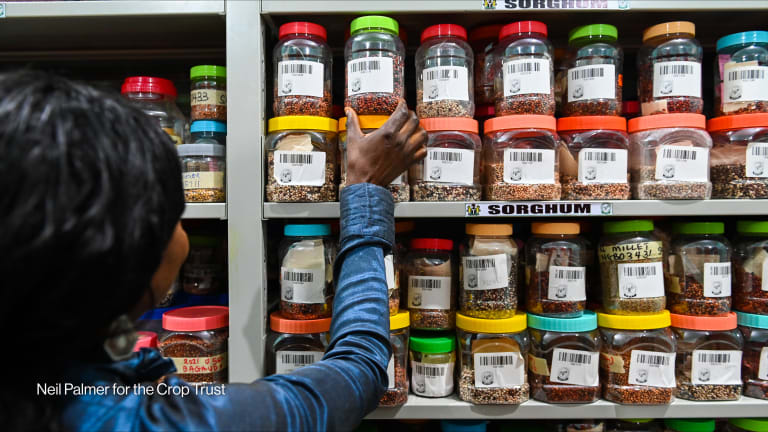Two agricultural scientists known as the fathers of the Svalbard Global Seed Vault, an arctic facility that safeguards the world’s seed varieties to protect global food security, have won the 2024 World Food Prize.
Cary Fowler, who currently serves as the U.S. special envoy for global food security, and Geoffrey Hawtin, the founding director and executive board member of the Global Crop Diversity Trust, will share the $500,000 prize. The annual award, which is considered the Nobel Prize for food and agriculture, goes to an individual or individuals who are confronting global hunger by improving the quality, quantity, or availability of food.
Fowler and Hawtin played key roles in establishing the repository, as well as the international legal framework that enables the transfer and storage of plant genetic material from nearly every country. The facility, located on a remote Norwegian archipelago, is often referred to as the “doomsday vault” because it’s the last line of defense against threats to global food security such as climate change, war, and pandemics — though Fowler and Hawtin say they don’t particularly like that title.








